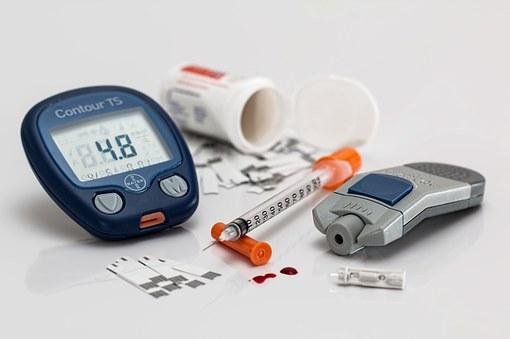Clinical trials of the new bionic pancreas to treat type 1 diabetes is showing success at controlling blood sugar while preventing hypoglycemia or low blood sugar.
stevepb/PixaBay
BOSTON, Dec. 20 (UPI) -- The bionic pancreas system is proving better in clinical trials at controlling blood sugar levels in patients with type 1 diabetes without risk of hypoglycemia (low blood sugar) than conventional or sensor-augmented insulin pump therapy, according to a new study.
Researchers at Boston University studied a group of type 1 diabetes patients over an 11-day period at their homes with no restrictions.
"For study participants living at home without limitations on their activity and diet, the bionic pancreas successfully reduced average blood glucose, while at the same time decreasing the risk of hypoglycemia," Dr. Steven Russell, Ph.D., of the Massachusetts General Hospital Diabetes Unit, said in a press release. "This system requires no information other than the patient's body weight to start, so it will require much less time and effort by health care providers to initiate treatment. And since no carbohydrate counting is required, it significantly reduces the burden on patients associated with diabetes management."
The bionic pancreas, which controls patients' blood sugar with both insulin and glucagon, a hormone that increases glucose levels, was developed by Edward Damiano, Ph.D., and Firas El-Khatib, Ph.D., of the BU Department of Biomedical Engineering.
The system consists of a smartphone that can wirelessly communicate with two pumps delivering insulin and glucagon. The smartphone received blood sugar readings from the continuous glucose monitor every five minutes, which it used to calculate and administer a dose of the insulin or glucagon.
There have been three previous trials of the bionic pancreas, a 2010 clinical trial showing that the original device maintained near-normal blood sugar levels for more than 24 hours in adult patients with type 1 diabetes, and a 2014 New England Journal of Medicine paper, which showed that an updated version of the system successfully controlled blood sugar levels in adults and adolescents for five days.
The third previous trial published in The Lancet Diabetes and Endocrinology in 2016 showed the bionic pancreas could successfully control blood sugars in children as young as 6.
In the 2014 trial, minimal restrictions were placed on participants and the trial was conducted in controlled settings where participants were accompanied at all times by a nurse for the adult trial and at a diabetes camp for the adolescent and pre-adolescent trials.
For the current trial, participants had the option to enter carb counts into the smartphone for each meal to allow the system to deliver an insulin dose, but it wasn't required.
Results of the current trial showed that while wearing the bionic pancreas, participants' average blood glucose levels were significantly lower -- 141 mg/dl versus 162 mg/dl -- than when on standard treatment. Hypoglycemia levels (less than 60mg/dl) for 0.6 percent of the time while wearing the bionic pancreas compared to 1.9 percent with standard treatment.
"Patients with type 1 diabetes worry about developing hypoglycemia when they are sleeping and tend to let their blood sugar run high at night to reduce the risk," Russell, who is also an assistant professor of medicine at Harvard Medical School, said. "Our study showed that the bionic pancreas reduced the risk of overnight hypoglycemia to almost nothing without raising the average glucose level. In fact, the improvement in average overnight glucose was greater than the improvement in average glucose over the full 24-hour period."
The current clinical trial report was published in The Lancet.















